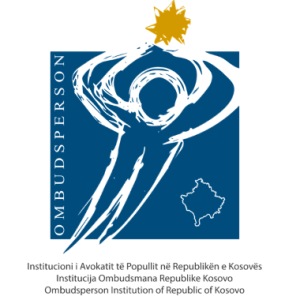
The Ombudsperson met the President of the Specialist Chambers
Prishtina, 13 May 2025 – The Ombudsperson, Mr. Naim Qelaj, received in a meeting, at her request, the President of the Specialist Chambers of Kosovo, Ms. Ekaterina Trendafilova.
The Ombudsperson Qelaj raised a number of issues regarding the work of the Specialist Chambers, also based on the concerns raised by the parties.
Initially, the Ombudspeson highlighted his concern about whether a fair and impartial trial is being guaranteed according to the standards of the European Court of Human Rights, regarding the rights of the accused in the procedure, which are also defined by the Constitution of the Republic of Kosovo.
In this regard, the Ombudsperson spoke about the equality of arms in relation to the evidence and the way in which this evidence was obtained, and in particular referring to the evidence provided by the Republic of Serbia, considering that Serbia is a state that has hostile attitude towards the Kosovo Liberation Army, of which the accused are part.
He added that considering the manner, path and procedures in which this same evidence was obtained, how credible it is and how it may be compromised at the moment it is presented in the court, and how much the defense is enabled to object to this evidence by obtaining information from the parties that have provided it.
From the concerns that the Ombudsperson has received, it is worrying how the court functions by consolidating all levels of the court into a single structure, which leaves room for doubt about the independence of the courts of the levels operating within this court, and this is not in the spirit of international standards that guarantee a fair trial in relation to the scale of the procedure and which are then related to the right to an effective legal remedy.
He emphasized that it also remains worrying when the Constitutional Chamber is also part within this structure, putting into question the separation of powers, considering that the Constitutional Chamber does not exercise the function of regular courts, but has the character of assessing the constitutionality, decisions and other acts and controlling the respect for human rights in accordance with international standards that are part of the legislation of the Republic of Kosovo.
Moreover, the fact that the Ombudsperson is part of this structure is even more worrying, and this is in contradiction with the Paris principles that stipulate that the Ombudsperson must be an independent institution, established by law or the Constitution, elected in a transparent manner and exercise its mandate independently and uninfluenced by any authority, which the Ombudsperson in the Specialist Chambers does not seem to meet these standards.
At this meeting, the interception of conversations and visits in detention was also raised as a concern because we consider that despite the fact that these may be permitted by law, they violate the principle of privacy, family life and violate effective protection if these interceptions also occur in relation to the defense team of the accused.
The Ombudsperson considers that the duration of detention on remand is a problem in itself. The duration and the failure to replace the measures with other alternative measures, such as the Court, do not trust the institutions of Kosovo that they can guarantee compliance with those measures and guarantee a regular and unhindered process.
The Ombudsperson also emphasized the issue of compensation for victims who are not at the same standard for the injured parties in cases tried in the Republic of Kosovo because everyone should be treated equally.
The Ombudsperson finally reiterated the fact that despite the limitations of his mandate in relation to the Specialized Chambers, he nevertheless has a role in relation to the overall functioning of the justice system, including the Chamber which is part of this jurisdiction. In these circumstances when the concerns raised are legitimate, he naturally has a responsibility, constitutional and legal, and reacts to all these issues.
The Ombudsperson emphasized the importance of clarifying the public on all the issues raised, considering this as an interest of justice and the court itself.
In conclusion, the Ombudsperson reiterated the need for greater public transparency, for a clear explanation of the issues raised, and for a shared commitment to maintaining the balance between justice and fundamental human rights.
The Ombudspesron’s Institution remains committed to raising its voice institutionally and independently whenever issues of concern to citizens and the public arise and relate to fundamental rights standards.

